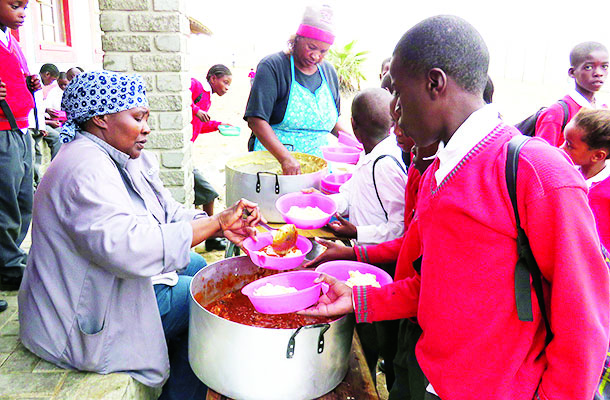OSHANA education director Hileni Amukana says the directorate is feeding about 38 615 primary school pupils under the school feeding programme.
Amukana said during the commemoration of the African school feeding day held at Ediva primary school this week, the directorate spends about N$5 million on the programme a year.
“School-feeding is a game changer for children, for communities and for Namibia and the world at large. We need to increase our numbers and budget to include the same pupils when they progress to secondary schools. We really applaud the government for its strong political will for this budgetary provision,” said Amukana.
The budget includes maize meal, sugar protein and the transportation of the food items to the warehouse.
“The transportation from the warehouse to the school is done by the school authority and we appreciate their support in this activity. The regional office is working to improve transportation from the warehouse to schools. During every school day, all primary schoolchildren receive one meal, which is very important.
“That meal attracts children to school and is often the reason they go to school in the first place, especially vulnerable children and those from child-headed households. Therefore, we cannot compromise not to serve this daily meal to our learners,” she said.
Amukana added that the directorate is looking at ways to improve and diversify the maize meal blend to something more nutritious.
“This will go under the home-grown school feeding initiative (HGSFI) where schools will be expected to grow and produce more traditional food to support and improve the current offering. We also expect local food producers to link up with their school to expand and strengthen the HGSFI,” she said.
Amukana noted with concern that during the Covid-19 lockdown, children missed out on their daily meal and some were literary starving. The introduction of the improved home-grown school-feeding programme will enable every school to feed children in their communities, even if the schools are closed due to emergencies.
Stay informed with The Namibian – your source for credible journalism. Get in-depth reporting and opinions for
only N$85 a month. Invest in journalism, invest in democracy –
Subscribe Now!










